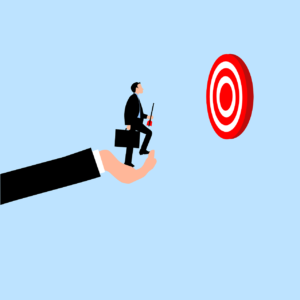The Changing 21st Century Business Environment
The 21st century business environment is changing at a very rapid rate with technological innovations, globalization, and changing consumer perceptions. Whether it is a new startup or a large multinational, businesses are venturing into new territories and trying new formats to remain ahead of the changing times.
Technology: The Game-Changer
Technology is probably the one most powerful driver rewriting business today. The virtual networks, automation, artificial intelligence, and cloud computing not only have streamlined operations but created new industries. Companies that once conducted business on tangible levels now thrive on the web, selling to global markets for low overhead.
Small businesses, in particular, have been supported by digital technology that may enable them to sell goods, maintain customers, and make data-driven decisions at a relatively low cost. Sites like Shopify and Amazon, as well as social media, have opened up entrepreneurship and facilitated business access worldwide.
The Power of Data
Data has become a commodity for small and big companies alike. From tracking consumer habits to forecasting market trends, data-driven decision-making allows companies to act quickly on changes in demand and outcompete competitors. Such power is two-edged, though. Data protection, privacy, and ethical use are at the top of today’s public agenda, and corporations must weigh innovation against transparency and trust.
Globalization and Its Impact
Globalization created opportunities for firms to expand beyond borders, access new markets, and create global supply chains. Globalization also presents its share of challenges, including increased competition, geopolitical instability, and the capacity to work with diverse cultures and regulatory systems. Most recent shocks, such as the COVID-19 pandemic and global conflicts, have pushed the resilience of global supply chains to the limit, and all the large firms are re-evaluating their sourcing and logistics strategies.
Sustainability and Social Responsibility
Consumers today not just demand a service or product but also need to invest in organizations with the same sense of values. Organizations are being asked to account for not just their economic bottom line, but also their social and environmental impact. It has led to more corporate social responsibility (CSR) initiatives, green technology, and ethical sourcing. Those companies that adopt sustainability not only help the world towards sustainability but towards brand loyalty and long-term profitability.
The Future of Work
The workplace has undergone a radical shift, and remote and hybrid are the new standards for almost all industries. It has forced organizations to rethink collaboration, leadership, and employee experience. Flexibility, mental wellbeing support, and culture of belonging have emerged as a condition required to attract and retain talent.
Conclusion
Today’s business landscape is more dynamic and complicated than ever. Adaptability, creativity, and a good knowledge of technology in addition to human requirements are necessary for success. Those businesses that are capable of utilizing these pressures without injuring ethics and social accountability stand the best possible opportunity to succeed in the following years.




